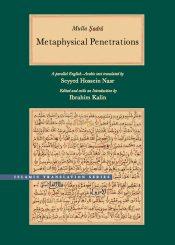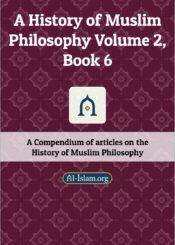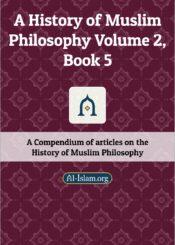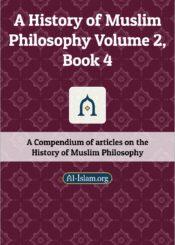Spiritual Philosophy and Scientific Truths
Spiritual Philosophy and Scientific Truths
0 Vote
347 View
By: Ayatullah Muhammad Taqi Misbah Yazdi A glance at the fundamental philosophical questions, to which spiritual and materialist philosophies give contradictory answers, clearly shows that the areas of contention between the two opposing points of view have nothing to do with experimental matters. Whatever the solutions found to scientific problems, they would not in any way affect the way these philosophical questions are answered. For example, accepting or rejecting Euclid's theory of space, holding to the view that mass is absolute or relative, or the validity or invalidity of the theory of mutation in biology, and other conflicting theories in the various sciences-none of these tell us anything about whether the divine or the materialistic philosophies are true; since the subject of discussion in philosophy is not the same as that of the experimental sciences, and the methods of investigation used in the two fields are completely different from each other. It is wrong to imagine, therefore, that it is materialistic philosophy alone that accepts scientific facts and affirms the validity of the laws governing the transformations and interactions of physical phenomena, while spiritual philosophy denies them and sets forth the theory of creation in their place. The materialists hold that belief in the theory of creation finds its genesis, in the distant past, in man's ignorance of the physical causes of phenomena. Therefore, now, when due to the advances in the experimental sciences, the system of physical causation has been fully discovered, there is no room left for such notions as that of creation or the dependence of phenomena on the will of the Creator . We know, however, that the dispute between the spiritual and the materialist points of view is not about affirming or denying the relationship between various phenomena, the nature of such relationships, or the laws which govern nature. What the dispute is about is whether the material world, with all the relationships existing between its various parts, be they known or as yet undiscovered by us, depends on a Being which transcends matter or not. It is obvious that if such a dependence does exist, it would not be of the sort that exists between material bodies, and, therefore, cannot be studied by experimental methods; because just as the nonmaterial Being (if it exists) cannot be known through sense experience, the dependence of material phenomenon on it, also, cannot be studied through laboratory instruments. In order to make this point even clearer, we must briefly discuss philosophy and the experimental sciences, the fundamental differences between the problems with which they deal, and the methodologies which they employ. Philosophy and Science By the way of an introduction we would like to remind the readers that there are many words which have a number of meanings. At times one of them has a wider and more general signification than the others. Sometimes the use of such words may lead to misunderstanding, and it is necessary to make sure that one understands the exact sense in which a word is being used. In philosophy, there are a number of such terms; for example, `potentiality,' `possibility,' `soul,' `reason,' and so on. Among the terms that share common significations are the words `philosophy' and `science.' In the past the word philosophy (lit. `the love of wisdom') was applied to all branches of knowledge, including the natural sciences, mathematics, divinities, ethics, and politics. Every branch of knowledge had a special methodology of its own, although sometimes it happened that inappropriate methods were used; for example, a problem belonging to the natural sciences was investigated through a purely rationalist approach, whereas it should have been studied through the experimental method. In the Middle Ages other branches of learning were added to the aforementioned list, until it came to include almost all the thinking of that age. After the Renaissance, and specially from the seventeenth century onward, those sciences whose method of enquiry was experimental, gradually separated from philosophy, and the term eventually came to be applied exclusively to that branch of learning the problems of which lay outside the realm of experiment and could be solved only through a purely rational, theoretical method. This branch of learning is called "metaphysics" or "the first philosophy". The term "philosophy" is also used to refer to the process of explaining the basic principles necessary for investigating the problems of a particular science, such as the philosophy of science and the philosophy of ethics. The word "science," which literally means "knowledge," is technically used to mean systematized knowledge of problems dealing with a particular subject. According to this definition, the term "science" could also be applied to metaphysics. In recent centuries, however, the usage of the term has become more limited, and has come to refer to the experimental sciences alone, in opposition to philosophy. According to the latter definition, philosophy and science each possesses its own distinct subject matter and methodology. That is, philosophy's subject of study consists of the general problems of existence, which are in the main part abstract and are also called, "secondary concepts," and its method is rational and theoretical. Science, on the other hand, is concerned with the study of the accidental properties of particular objects the existence of which is taken for granted; its method is experimental. For example, physics deals with matter and energy and their interactions in the fields of mechanics, acoustics, optics, heat, electricity, magnetism, radiation, atomic structure, and nuclear phenomena; chemistry studies the composition, structure, and properties of substances and the transformations they undergo. Physiology investigates the organic processes and phenomena of living organisms, while psychology discusses mental conditions and characteristics. However, none of these sciences has anything to say about the essential nature of the subject it studies or the fundamental principles underlying its methodology. In other words, neither physics and chemistry express any opinions about the existence of matter, nor physiology and psychology discuss the reality of life and the soul. Nor does any of these sciences examine the principle of causality and its subordinate laws. What philosophy concerns itself with are general abstract questions such as: cause and effect, permanence and change, the material and the abstract, the contingent and the necessary, etc. And since these issues are not directly connected with sense perception, the problems related to them cannot be settled empirically. The key to their solution must be found in rational investigation and analysis. The way these rational investigations are carried out and the value of their findings constitute the subject matter of an important part of modern philosophy known as "epistemology." It follows then that we cannot expect scientific progress to help us in resolving philosophical disputes, and science to act as a referee in the quarrel between spiritual and materialist philosophies. Unfortunately, there have been numerous attempts in the history of science and philosophy to invoke scientific laws or theories for help in the solution of philosophical problems, or to tip the scale in favour of a particular metaphysical position. On the contrary, others have sought refuge in the philosophical mode of reasoning and the rational method to help them solve a scientific problem. This, despite the fact that such intrusions are dangerous for both philosophy and science, and keep them from following the paths appropriate to their fields of study and solution of their problems through the use of methods prescribed by the nature of those problems. As an example of such unjustified intrusion, we can mention the sort of argument some modern physicists have used to "prove" the existence of necessity in the relationship between cause and effect (determinism) by referring to findings in the field of macro-physics, while other physicists have pointed to certain phenomena observed in micro-physics as evidence that no such necessity exists. There is yet a third group that has endeavoured to reconcile the two positions by proposing that determinism is valid in the case of macro-physical phenomena and invalid in the case of micro-physical ones. All this while any philosopher knows that the law of causation is a general philosophical and metaphysical law which is, according to the definitive judgement of reason, fixed and unchanging. What we must do is to search in nature for cases which would verify the law of causation through experimental investigations. What we definitely shouldn't do is to consider the discovery of a few examples of its applicability as a proof of its validity, or the inability to apply it in few cases as evidence of either its invalidity or lack of generality; since such failure is definitely a result of the inadequacy of our instruments. In fact, it is the self-evident principle of causality that has moved scientists to seek the causes of phenomena and to discover the laws and secrets of nature. To attempt, therefore, to prove this metaphysical principle through reference to physical phenomena and the discoveries of the experimental sciences is like trying to play the flute by blowing through its wrong end. It should not go unsaid, however, that philosophy and science are related to each other in a number of ways, the most important of which is that philosophy proves the existence of the subject matter and the validity of the fundamental principles of the sciences, while the sciences provide a widening background for philosophical inquiry. In any case, there should be no mixing of either their problems or methods and no expecting of solutions to scientific problems from philosophy or of philosophical problems from science. Source: alhassanain.com






